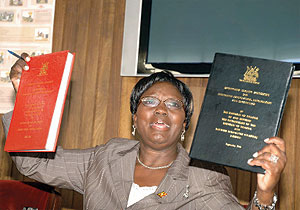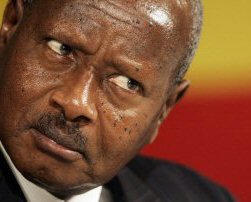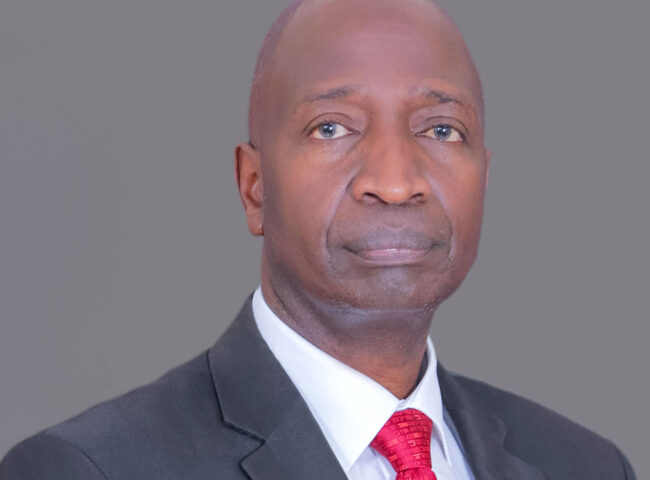Yesterday’s Hot Seat show was interesting.
It featured Hon. Abdu Katuntu, the lead petitioner, who together with Theodore Ssekikubo have gathered enough signatures for a historic recall of Parliament. Also visiting the Hot Seat for a rare sitting was Dr James Akampumuza. The law don had earlier written an insightful piece in the Observer newspaper titled “ Embrace secrecy, lose Transparency”, part of the continuing public interest in openness in the oil sector.
At the beginning of the how Hon. Katuntu said the petitioners wanted to focus on the oil sector issues they were raising through their proposed recall and did not want to be distracted by the “politics” of it. Still I pushed the line that it was in fact all politics and interesting, if historical politics at that.
Currently the petitioners have garnered some 176 signatures to cause the recall of Parliament (they need 125) but have run against a flip-flopping Speaker, Hon Rebecca Kadaga, herself a lawyer, who seems intent on frustrating not just the debate on oil but the recall of Parliament from recess.
After a meeting with oil sector ministers accompanied by the Attorney General and URA Commissioner Allen Kagina (whose high profile role in the oil business has been doing rounds in the industry), Kadaga emerged in a defiant mood.
She gave a press conference saying the petitioners needed to convince her they merited the recall. Her position raises the following rather disturbing legal and political issues.
Firstly, I think more than the oil debate, the ruling party is concerned over its inability to control the House. There are just 58 Opposition Mps in Parliament so twice the number who have signed up for the recall are NRM Mps. Just over 6 weeks ago, I was told Independent Mps in the House were plotting their own caucus drawing the ire of the front bench and a flurry of phone calls from State House.
After the election, Walk to Work, the economic “recession” and a legislative agenda, which includes proposed amendments of the constitution (to lift bail for example and other ruling party wish-lists), a volatile House is a huge embarrassment to the NRM.
The Speaker may have been asked to play ball by government officials (and reportedly the President) because the recall represents a crisis in the ruling party.

But there is more. Perhaps for the first time in a long time (and I cannot recall any such time in history), a Speaker of Parliament will be ousted from her seat. The recall procedure in the Ugandan constitution was written precisely “ for a situation like this”.
If a Speaker ( like Kadaga above) were to align with the Executive against the House, it allowed his or her hand to be forced, so as to retain the ability of people’s representatives to exercise legislative oversight over the Executive. Besides Article 95, does not give the Speaker any discretion whatsoever to determine whether or not a recall of the House merited her action.
According to Akampumuza (and rightly so) the Speaker was quoting parliamentary rules of procedure to overrule the Constitution, a ridiculous position if at all. He argues that since Parliament is part of government, and together with the Executive and Judiciary are equally “agents” of the people, the notion that agreements signed can be hidden by one “agent” was disturbing.
” It suggests that one part of government is claiming the sole right to represent the rest” he said, adding that ultimately any agent of government is responsible to the people of Uganda since agreements are signed in their name.
“Article 95 is clear, mandatory and binding on the Speaker,” the lawyer said warning that her job was at stake if she attempted, against all legal logic to shirk the recall.
But what causes a trained attorney like the Speaker to express herself feebly on the law where it is clear?
Politics.
I found it in another section of the constitution, this time Article 82 (7) e, which provides for the “recall’ or removal of a Speaker of the House. The article says a Speaker can be removed with the signatures of 2/3rds of all Mps. However seeing that the petitioners had already gotten half the House signed up, I wonder how far-fetched it is to envision a situation where Mps, including those who are sitted on the fence over the oil issue, rally to defend their legislative influence by kicking out the Speaker.
Its possible I think. Next week will show just how viral the oil debate has become in Ugandan politics. At 11:00 am all Mps who signed the petition are expected to meet to “plot a way forward”. I expect it will be nothing but a mutiny against Speaker Kadaga.
A word on the oil sector in closing. While the Speaker claims to have the “oil agreements”, the question of whether or not they are available to Parliament will be determined last week. Word is that the Clerk’s Office and the Library of the House do not have copies. When the documents were tabled in the last Parliament, sources within the Parliamentary staff have told the petitioners, Ministry officials left with the documents. Since then it means claims by government officials that Parliament had the documents may have been intended to deceive the House.
As the political back and forth continues, the government in what appears to be public pressure driven, has taken a nationalist position on the current Tullow farm-down requiring that protection clauses in the agreements be removed. It’s commendable to say the least that the government at the urging of the President (sources in the industry says Allen Kagina was central to his position on the agreements) is seeking a better deal.
The likely outcome should be a better deal but it’s likely (as I have suggested through our Think Tank Fanaka Kwawote) that protection will be re-defined and negotiated. Ironically a suspicious House may not have seen that their position on a better deal for Uganda actually is the same as that of the Executive they are battering.
My own position is that guarantees of some kind will need to be made to secure the investment of the oil companies, so the protection clauses will return in some way or form.










